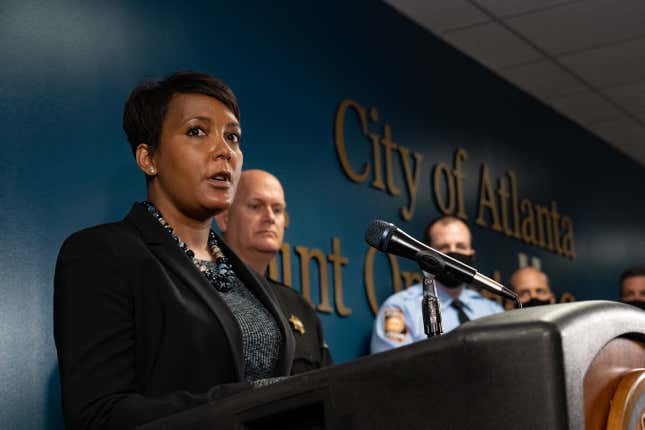
Atlanta Mayor Keisha Lance Bottoms doesn’t have authority to reverse Georgia’s racist voter suppression laws for her city, but she can at least educate her constituents on how to abide by them as best they can.
Bottoms announced an executive order that instructs Atlantic’s chief equity officer to carry out “a series of actions to mitigate the impact” of the restrictive voter laws in the state, according to CNN.
The order will direct the city to educate voters on which types of ID they need to vote, staff training and voter education. More specifically, Bottoms’ order calls for training of staff on issues such as voter registration along with early, absentee and in-person voting “in order that they may communicate this information to City residents.” It will also address how voter information is disseminated.
“This Administrative Order is designed to do what those in the majority of the state legislature did not—expand access to our right to vote,” Bottoms said in a statement.
Of course, we all know that Georgia’s new, racist voter law, known officially as The Election Integrity Act of 2021, is designed to prevent Black folks and other folks of color from voting. Hell, even Kemp said the new law has nothing to do with fraud.
After MLB left Atlanta for Colorado for its All-Star game, Kemp claimed that his state’s voting laws are similar to Colorado’s. Per a report from NPR, we know that is a lie:
So, while it’s true that Colorado has fewer days for in-person voting, it also has far less demand for in-person voting. Voters rarely encounter lines here. And the ultimate result of Colorado’s system is relatively high turnout.
Georgia’s new law moves the state away from Colorado’s vote-by-mail approach, pushing more voters to show up in person. For example, under the new law, Georgia elections officials can only mail out absentee applications to voters who individually request it, shutting down one approach to encouraging mail balloting. And voters will have a shorter window to ask for those ballots. (Georgia sent out absentee applications to millions of voters in the 2020 primary, even if they hadn’t requested it, to encourage absentee voting during the pandemic.)
The Georgia law also bans mobile voting centers, and it strictly limits the use of dropboxes. This is another area where Colorado is moving in the opposite direction. Colorado had one dropbox per 9,400 active registered voters for the last election, with the secretary of state boasting about adding scores of new locations in the past few years.
In Georgia, it’s capped at one box per 100,000 active registered voters.
Arizona, Texas, Michigan and Florida are other states in which GOP leadership is trying to make it harder for people to vote. Most of them cite Donald Trump’s false claims of election fraud as their justification.

